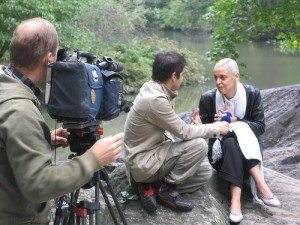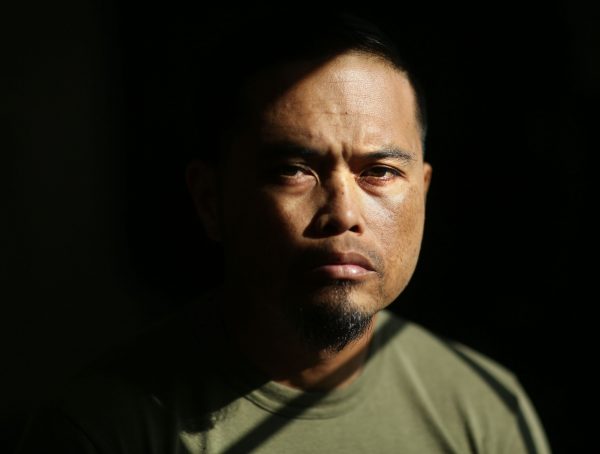 The interview is one of the most basic building blocks of journalism. It sounds obvious, but reporters have to talk to people to learn what’s really going on. And journalists need to include people’s voices in their stories to make those stories come alive.
The interview is one of the most basic building blocks of journalism. It sounds obvious, but reporters have to talk to people to learn what’s really going on. And journalists need to include people’s voices in their stories to make those stories come alive.
It takes preparation and skill to do a good interview. It’s not just a matter of going out with a question and coming back with a sound bite. So NewsLab offers the following tips as a starter kit.
Choose the right person to interview
Talking to “the usual suspects” all the time can make stories predictable and flat. Look for different sources who might add a new perspective by asking these questions:
- Who is most directly involved in this story? Who is the central character?
- Who is most affected by what is happening in this story?
- Who is in conflict in this story?
- Who might have more information about this story?
- Who could help me find the right person to speak to for this story?
Evaluate your choice
- How does this source know what he or she knows? (Is this person in a position to know these things–either personally or professionally?) How can I confirm this information through other sources, through documents?
- How representative is my source’s point of view? Is this just one person who complains loudly about the landlord, because he or she has a personal problem? Or is this the most articulate voice speaking for an entire group that has serious, legitimate problems?
- Has this source been reliable and credible in the past? Am I only using this source because it’s the easy way to go? Because I know I’ll get a good sound bite?
- What is the source’s motive for providing information? Is this person trying to make himself look good, or to make his boss look bad? Why is he or she talking to me in the first place? Am I being manipulated or spun by this source?
Persuade reluctant sources
Arranging an interview is not always easy. People often don’t want to talk with a journalist, especially about controversial issues. When dealing with public officials, start from the premise that the public has a right to know what those officials are doing. Then anticipate their concerns:
- They don’t have time. Offer a more convenient time or place. Say you’ll drive to work with them in the morning and talk along the way. Be prepared to limit the amount of time you need, if this is an important source.
- They’re afraid. They think you will make them look bad. Be clear about why you want to talk to them and why the story needs their point of view. If they are just anxious about talking to a reporter, work hard at being a real person so they can relax. Don’t use the “interview” word. Just say you want to talk to them, but be clear that it will be on camera.
- They don’t know what to say. Maybe you have chosen the wrong source. Or maybe you have not been clear about what you are seeking. Focus on what the person does want to say, so you can draw him or her out. If you are dealing with children or victims of trauma, take special care.
- They are being protected. You have to get through a secretary or a public relations officer to the person you want. Write a letter directly to the source. Call during lunch or after business hours–you may find that person at his desk without a secretary to run interference. Some reporters have been known to just show up at the office or at a location where the person will be (the parking lot, a football game). Cultivate the person who is standing in your way. Sometimes they will even take your case if you are polite but persistent. Or use an intermediary–someone who knows that source and can put in a good word for you.
- They don’t see any reason to talk to you. Give them good reasons why they should. If they say no comment, ask what they thought the last time they read a story with a no comment in it. Did they think the person was hiding something? Wouldn’t they rather provide some information to set the record straight? Appeal to their sense of importance. Tell them you really need their point of view, that they can contribute something no one else can.
Finally, if officials simply refuse to talk, hold them accountable.









1 Comment
This was a great outline, I really liked the suggestions on ways to get interviewees to open up. Ed Smith
conductknockoutbroadcastinterviews.com/blog.